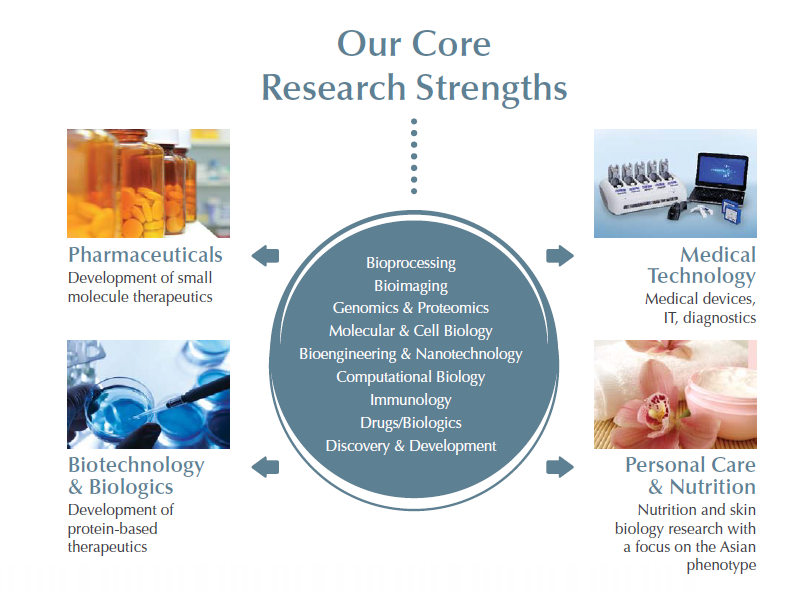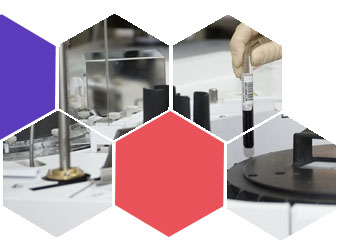BIOMEDICAL RESEARCH COUNCIL
The Biomedical Research Council (BMRC) supports, oversees and coordinates public sector biomedical research and development activities in Singapore to cultivate a thriving biomedical cluster. At BMRC, we:
- oversee the development of core research capabilities in bioprocessing, genomics and proteomics, molecular and cell biology, bioengineering and nanotechnology, and computational biology.
- actively promote translational medicine and cross-disciplinary research as part of our efforts to advance healthcare.
- support biomedical research in the wider scientific community such as public universities and hospitals.
- foster a strong talent pool in the biomedical sciences.
- promote public awareness of biomedical research through our outreach programmes.
We are able to craft unique value propositions for companies by enhancing the capabilities of the public R&D sector and encouraging flexible thematic partnership programmes that draw upon the multidisciplinary scientific capabilities in Singapore. This in turn serves to attract private R&D biomedical (BMS) investments into Singapore.
Located at the iconic research hub Biopolis, BMRC manages the following Research Entities which carry out a spectrum of R&D activities, ranging across knowledge creation, enabling capabilities, large-scale programmes, and industry oriented activities.
A*STAR Research Institutes
- A*STAR Infectious Disease Labs (ID Labs)
- A*STAR Skin Research Labs (A*SRL)
- Bioinformatics Institute (BII)
- Bioprocessing Technology Institute (BTI)
-
Genome Institute of Singapore (GIS)
- Institute of Molecular & Cell Biology (IMCB)
- Singapore Immunology Network (SIgN)
- Singapore Institute for Clinical Sciences (SICS)
- Singapore Institute of Food and Biotechnology Innovation (SIFBI)
Programmes, Platforms and Scientific Services
*National level initiatives are facilities and expertise hosted and managed by A*STAR but funded nationally or by multiple public stakeholders and serve specific national needs.
Supporting National Therapeutic Priorities – HBMS Disease Taskforces
BMRC was instrumental in generating the Taskforce reports for the five diseases of national priorities. The five therapeutic areas of focus were identified based on disease impact, scientific excellence in Singapore and national needs. The focus areas are (i) cancers, (ii) cardiovascular diseases, (iii) diabetes mellitus and other metabolic / endocrine conditions, (iv) infectious diseases, and (v) neurological and sense disorders.
BMRC'S CORE RESEARCH CLUSTERS

A*STAR celebrates International Women's Day

From groundbreaking discoveries to cutting-edge research, our researchers are empowering the next generation of female science, technology, engineering and mathematics (STEM) leaders.
Get inspired by our #WomeninSTEM

